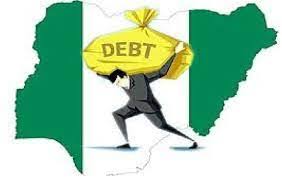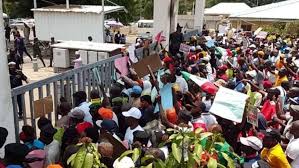
Debt burden: Borrowing is not a sin — Presidency
The Presidency has maintained that borrowing is not sinful when done responsibly and has justified its borrowing policy as an essential instrument for economic growth.
The explanation was given at a presidential media conference in Lagos, where senior presidential advisers briefed reporters on the administration's financial results and prospects.
Last week, President Bola Tinubu filed a request to the National Assembly seeking clearance for extra external and domestic loans worth N34.15 trillion.
In response to inquiries concerning Nigeria's debt profile, Mr. Bayo Onanuga, Special Advisor to the President on Information and Strategy, stated: "Borrowing is not a sin." Even developed countries that borrow more than their GDP include the United States of America (USA) and the United Kingdom (UK). What you do with the borrowed money is the problem, not borrowing itself.
"We are a populous, impoverished nation. We have to quit fooling ourselves; South Africa's budget is larger than Nigeria's. Regarding what we can finance without borrowing, we must be practical.
He clarified that while managing inherited economic restrictions, the Bola Tinubu-led administration had achieved noticeable progress in macroeconomic reforms and inclusive programs.
"We accept that the first year of this government was volatile," Onanuga added, referring to the administration's economic progress despite early setbacks. Inflation, exchange rate volatility, and legacy problems that were out of our direct control were among the significant obstacles we had to overcome.
Nigeria's macroeconomic metrics have improved dramatically in recent years. This has been acknowledged by international organizations such as the World Bank and International Monetary Fund, IMF, have commended our efforts and direction.
“Nigeria’s All Share Index has more than doubled from 50,000 in 2023 to over 110,000 in 2025.
“The country’s foreign reserves currently stand at $21 billion, up dramatically from past lows. Nigeria has more money available to invest in social services now that its debt servicing has decreased from 97% of government revenue to less than 60%.
The Presidency emphasized continued interventions targeted at economic inclusion, including PPPs and innovative financing methods like Infraco, tax credits, and matching funds with state governments to support important housing and infrastructure projects.
"Among others, the student loan program under NELFUND has benefited over 600,000 students," he stated.
"By providing technical education and financial access, we are establishing the foundation for Nigeria's industrial base."
"We completely recognize that Nigerians are suffering through challenging times," Onanuga added, referring to the measures the administration is taking to alleviate hardship and stabilize prices. However, the government is not doing nothing.
"We have implemented targeted measures to alleviate the strain, ranging from the medical pool initiative's bulk acquisition of necessary medications to targeted agricultural assistance meant to stabilize food prices.
Additionally, we have promoted the use of compressed natural gas, or CNG, in transportation. Today, some ride-hailing drivers who used to make N10,000 weekly now earn that everyday, just from savings on fuel.
Additionally, the president granted a six-month import waiver for rice. The purpose of that action was to intentionally lower food prices and end the cycle of hoarding and fabricated scarcity.
“We need to be honest with ourselves. Nigeria is not as rich as many people think. We are a large country with limited resources and an exploding population. The truth is, we must recalibrate our expectations and begin to manage our ambitions more realistically.”
"We can not build highways from Lagos to Calabar or Sokoto to Bida without borrowing," added Mr. Sunday Dare, Special Adviser to the President on Public Communication. "Projects like these wake up entire regions economically. The real problem is not debt; it is waste. With proper utilization, borrowing is a tool for national transformation."





